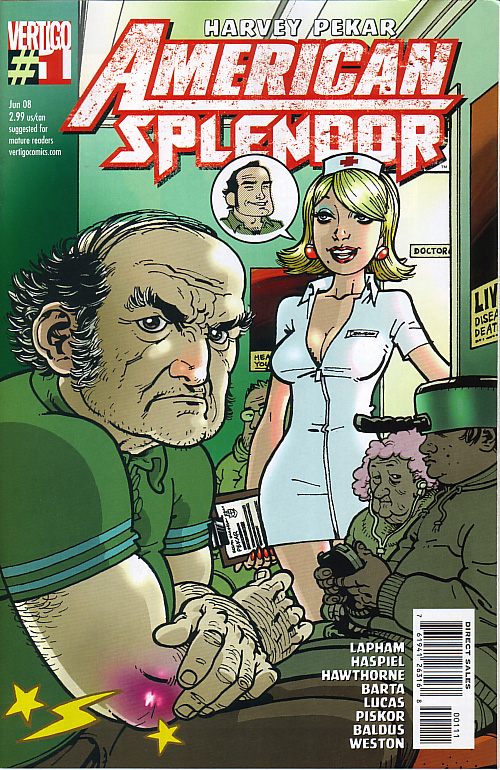
NEW YORK TIMES: Harvey Pekar, the irascible writer who spun the mundane details of his own life and the quotidian existences of his fellow Cleveland residents into comic-book narratives, and who showed that the comic-book panel could include everyday feelings of anxiety and disappointment as easily as it does the adventures of costumed heroes, has died, The Plain Dealer of Cleveland reported. He was 70. Mr. Pekar was best known for his on-again, off-again comics series “American Splendor,” whose title deliberately contrasted with the everyday people it documented (often the author himself). A wide range of illustrators contributed to its pages, most famously R.  Crumb, who first met Mr. Pekar in Cleveland in the 1960s and encouraged him to turn the stories he gathered on his travels through the city into comics. MORE
Crumb, who first met Mr. Pekar in Cleveland in the 1960s and encouraged him to turn the stories he gathered on his travels through the city into comics. MORE
LOS ANGELES TIMES: Even more, he yielded nothing, angering those who might help him for what at times seemed like capricious reflex. In the late 1980s, he was banned from “Late Night With David Letterman” after a series of contentious appearances, including one during which he wore a T-shirt that declared “On Strike Against NBC” while launching into an extended rant about its corporate parent, GE. Invited back to make amends, he accused Letterman of being a corporate shill. It was discomforting, funny in a provocative way. And yet, to watch those clips now on YouTube is to see something authentic and subversive, the talk show as Dadaist political experiment, in which the power of the open mike is used, even for a few minutes, to pry back the slick veneer of entertainment culture and expose the contradictions underneath.
That is what Pekar did, in his work and in his life. For Pekar, the two were inseparable, feeding into each other in a fluid back-and-forth. The animating concept was, as he wrote in his introduction to “The Best American Comics 2006,” “[T]here was no limit to what you could do with [comics]. They could be like novels or films. The only thing limiting the growth of comics was the people who produced them, from the artists and writers to the publishers, who couldn’t see comics as anything but a medium for kids.” MORE
